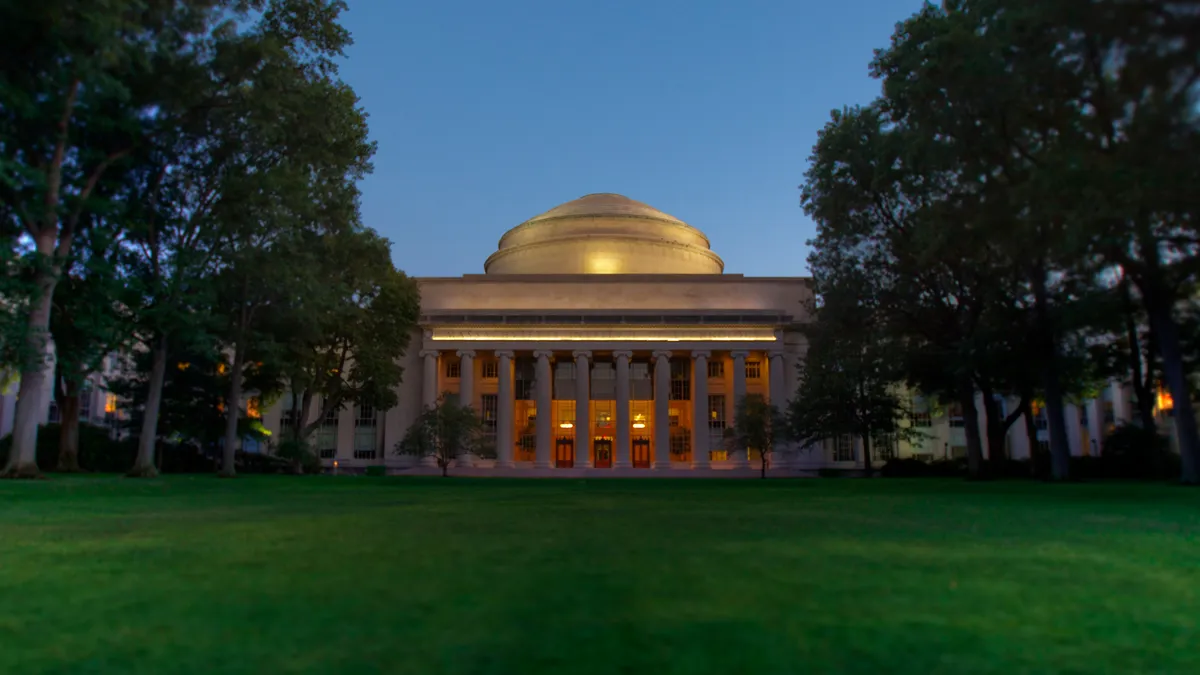Dive Brief:
- An associate provost of the Massachusetts Institute of Technology (MIT) recommended that the university maintain its ties to Saudi Arabia, despite the country's ongoing involvement in the humanitarian crisis in Yemen and alleged role in the murder of a journalist, according to a preliminary report issued Thursday. The internal report was prompted by the slaying of Washington Post columnist Jamal Khashoggi inside a Saudi consulate.
- The university does not have a "compelling case" for withdrawing from its Saudi relationships, wrote Richard Lester, the associate provost for international activities. The bulk of the university's relationships with the country involve gifts from Saudi donors as well as sponsored research from state-run companies and other groups.
- MIT had been considering a large-scale expansion of its relationship with Saudi Arabia by helping with an economic development project that has been trumpeted by the country's crown prince, Mohammed bin Salman. However, the university is no longer considering participation in the project, Lester wrote in the report.
Dive Insight:
Although Khashoggi's death was the impetus for the report, MIT has faced heightened scrutiny over its relationship with Saudi Arabia since the crown prince's visit to the university in March sparked student demonstrations and a petition calling for its cancellation.
The university signed four agreements with the country during the visit, though only one launched a new partnership. Critics of the Saudi government have since put "sustained pressure" on the university to sever ties with the country, The Chronicle of Higher Education reported.
In an October op-ed for the university's student newspaper, more than a dozen political science graduate students called on MIT President L. Rafael Reif to end all business with the country's government and denounce its continued human rights violations. "MIT has no shared interests with [Mohammed bin Salman]," they wrote. "Engaging with him does less good and drives less progress than using MIT's voice to strongly condemn him and his government."
The preliminary report recognizes the ethical concerns the university's partnerships with the country raises. For one, a member of the crown prince's entourage during his visit has been directly linked to the murder of Khashoggi and has since been sanctioned by the U.S., the report explains. Further, according to the report, the country has pursued "repressive policies" against women and LGBTQ citizens, and many have decried its role in Yemen's civil war.
Yet the university's ties to the country are extensive. Over the last six years, MIT has garnered nearly $78 million in gifts and contracts from Saudi sources, according to Inside Higher Ed. A large share of those funds has come from alum Mohammed Abdul Latif Jameel, who has doled out money for scholarships and programs focused on alleviating poverty.
Lester wrote in the report there was no apparent evidence that any of the organizations connected to MIT had a role in Khashoggi's murder or have had a hand in other objectionable Saudi actions. Ending these relationships would be unlikely to have an "ameliorative effect" on such activities, he contended, adding that MIT instead works to support research and activities that align with its values.
MIT is not the only university that has benefited from Saudi partnerships. Since 2012, George Washington University has reaped more than $75 million, the bulk of which came from the Saudi government or embassy. Johns Hopkins University, Harvard University and the University of Southern California are also among the colleges that have received millions from Saudi sources in the form of gifts or contracts, Inside Higher Ed reported.
Like MIT, some colleges are reexamining those relationships in light of Khashoggi's death. At Babson College, which recently helped start a Saudi business college named after Mohammed bin Salman, the president wrote a letter stating the college would be reassessing its activities with the country. And at Northwestern University, which has received more than $14 million from the Saudi regime, the university leadership has asked faculty who have received such grants for research to reassess their relationship with the country.











